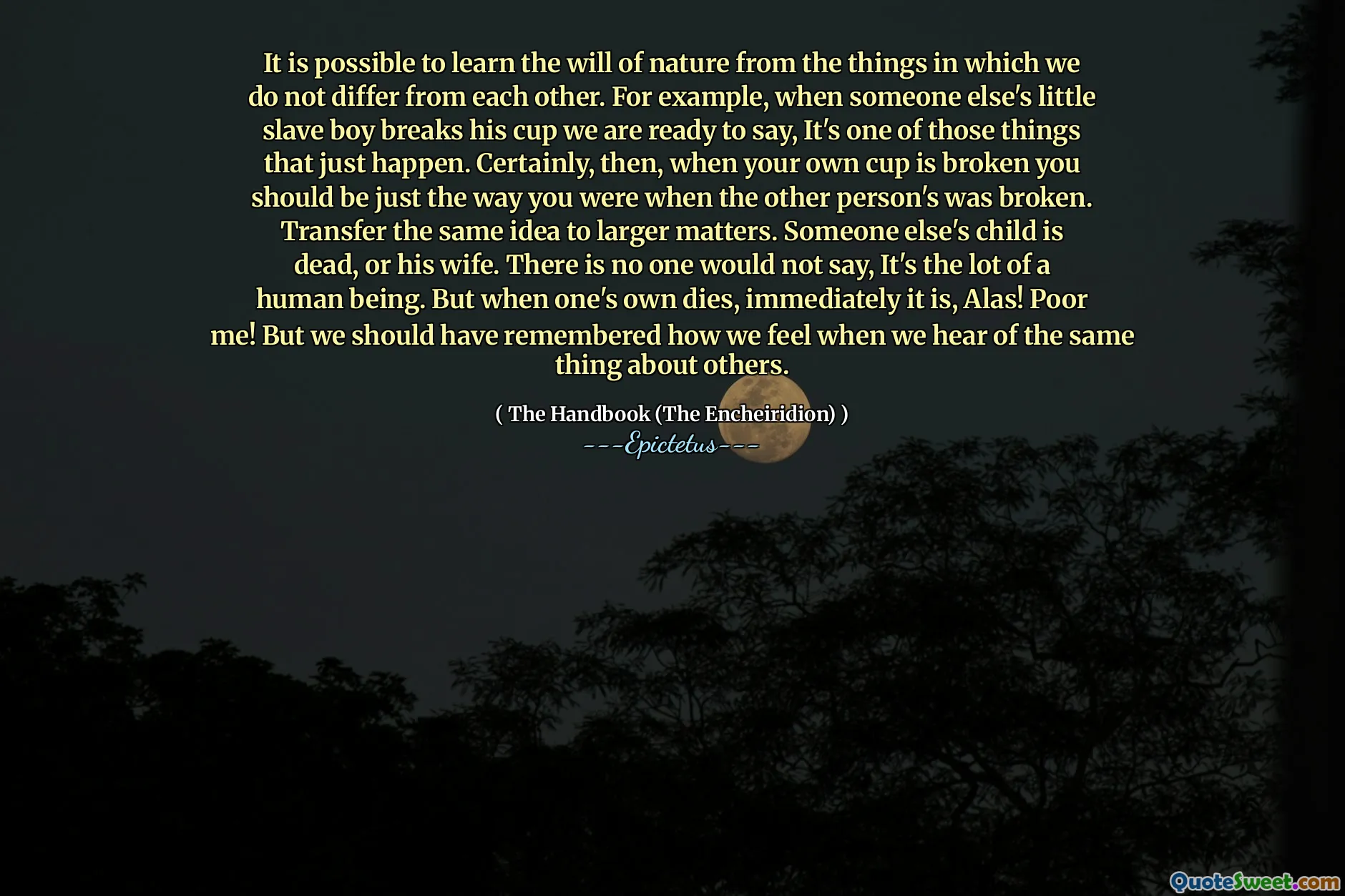
可以从我们彼此之间没有差异的事物中学习自然意志。例如,当别人的小奴隶男孩打破他的杯子时,我们准备说,这是发生的事情之一。当然,那么,当您自己的杯子打破时,您应该就是在对方被打破时的样子。将相同的想法转移到更大的问题上。别人的孩子死了,或者他的妻子。没有人不会说,这是一个人。但是当一个人死亡时,立即是,可惜!可怜我!但是,当我们听到对他人的同一件事时,我们应该记得我们的感受。
(It is possible to learn the will of nature from the things in which we do not differ from each other. For example, when someone else's little slave boy breaks his cup we are ready to say, It's one of those things that just happen. Certainly, then, when your own cup is broken you should be just the way you were when the other person's was broken. Transfer the same idea to larger matters. Someone else's child is dead, or his wife. There is no one would not say, It's the lot of a human being. But when one's own dies, immediately it is, Alas! Poor me! But we should have remembered how we feel when we hear of the same thing about others.)






